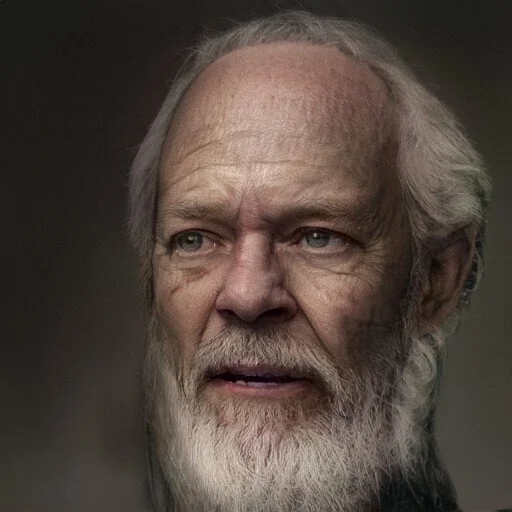We Were Tired of Being Mild
Reading surrealist post-punk poet Lydia Tomkiw’s collected poems.
BY JOSHUA JAMES AMBERSON
FOR A GOOD PART of the past decade, the late poet Lydia Tomkiw’s chapbooks have been, for me, small holy grails. Once, a filmmaker working on a documentary about Tomkiw sent me PDFs of two of Tomkiw’s shorter chapbooks she’d acquired through college library archives. Another time, I waited patiently in the bedroom of the guy who released her band’s records in the early 1990s as he scoured his bookshelves for her chapbooks, only to come up empty-handed.
I became interested in Tomkiw’s casually surreal poetry when I heard her reciting a poem about a tractor pull in her heavy Chicago accent over a minimalist post-punk ballad. It was a song recorded in the late ’80s by her band Algebra Suicide making it into my ears twenty years later by way of a mixtape my roommate bought from a local record shop. Within days of that first listen I’d inhaled as much of their music as I could find through download sites and followed the few crumbs the internet had to offer about Algebra Suicide and Tomkiw. Several years into this obsession I had the pleasure of meeting some of her old friends, which led to me interviewing more of her friends and collaborators and started a years-long writing project to try to piece together the bits of her life that seemed missing from recorded history.
Over this span of time, the clues to Algebra Suicide have grown—a limited-edition reissue compilation was released on San Francisco’s Dark Entries Records in 2013 and another in 2019, both creating more internet presence for the band and expanding their fan base—but what I hadn’t found, in any sizable way, were Tomkiw’s poems. Between the two short chapbooks, her inclusion in the inaugural Best American Poetry anthology in 1988, and the few strays online, I’d read a few dozen, most of which I’d already been familiar with via their Algebra Suicide song adaptations. According to everything I’d read and the people I’d interviewed, there were hundreds more poems that had been published in some form, plus thirty years of unpublished work.
This lack also plagued Dan Shepelavy, editor and publisher of Lydia Tomkiw Poems, the newly released book of Tomkiw’s collected work that most fans likely never imagined would exist. “Algebra Suicide was easy to find,” he writes in the book, referring to his own relatively recent obsessive quest. “But the music begged the verse. And when I went searching for the verse I found the thing you almost never find when you go searching for things in the vast reefs of the interwebs—next to nothing.”
Lydia Tomkiw’s 1995 solo album, Incorporated.
Through former publishers, friends, family members, and collaborators, he was able to assemble this collection—all five published chapbooks in facsimile, as well as nearly a couple hundred uncollected poems. The book begins with two self-published chapbooks released in 1978 and 1979—Ballpoint Erection and Obsessions—when Tomkiw was nineteen and twenty years old. In the introduction, Shepelavy writes about the DIY ethos that Tomkiw maintained her entire life: “Tomkiw took to self-publishing and self-promotion with gusto, enjoying the process as much as the pageantry. Enlisting her brother John as an art director, collaborator, and general co-conspirator, she named her ‘imprint’ MOD Distribution, its address the family apartment in Ukrainian Village, the office the Tomkiw’s kitchen table.”
In many ways these early chapbooks are what you might expect from a young poet just starting out, but it’s a joy to watch the beginnings of her particular lexicon and syntax take shape. “Insomnia,” from 1980’s Popgun Sonatas, provides a good sense of the way in which these forces were coming together and turning into something uniquely her own:
Go ahead:
Dream of encyclopedias written about you,
Or ram horns sitting shy but available
In thrift stores,
Of bald men at parties conjuring up
Spirits who become wallflowers.
Wake up; I want to break your
Legs with stories.
1986’s Big Skin—released as a companion to Algebra Suicide’s live album of the same name—is somewhere between a poetry chapbook and a lyric sheet. It’s a good read, since her lyrics are so sharp, and the book is in some ways a great introduction to what Tomkiw can do as a writer. And while it won’t offer much new to fans of Algebra Suicide, it’s interesting to see how some of the poems work and read differently than the songs, as well as which pieces seem written with the page in mind and which were likely written to become songs. “Little Dead Bodies,” Algebra Suicide’s most lasting and accessible song, doesn’t translate to the page well at all, while “Seven” (the poem version of “Seven Song”) arguably works better as a poem and feels even more anthemic than the song it became, with its refrain:
We were tired of being mild,
We wanted tornado, our lips painted red.
...
We were tired of being mild,
The ominous blur,
Nestled in motorcade,
Backseat and obscure.
…
We were tired of being mild.
We wanted tidal wave, the taste of bile
Pumping hard into our throats.
In terms of Tomkiw as a poet—and not as a lyricist also working on the page—it’s really in 1989’s The Dreadful Swimmers that her talents coalesce and are put on full display. The poems here are well-honed, and Tomkiw’s plays of language and rhythm are repeatedly surprising. In “Nerve Catcher,” for instance, she proves herself the queen of the brilliant, unexpected opening:
“Suave” is dumbness:
A large vapor of withdrawal
Releasing you from the
Day’s full body.
You grab back all the freshness
That’s ever been on your face,
Exhale the thick of morning, and
Part the drought that’s dulled the stars.
In “No Soap,” she’s more grounded, working within some of the strongest themes of her work as a whole—the stories we tell, the cruelness of daily life, the impossibility of love:
It is the love story that bothers me,
The happy one that’s never told because
No one cares to listen.
Try telling the story of a true love,
One with no turmoil, no tragedy,
No one getting hit in the head with a kitchen knife
Flung by an irate lover,
No one squabbling over bills or
Toothpaste squeezed from the middle.
...
Even fairy tales sum up the best part in one sentence:
They lived happily ever after.
Children fall asleep at this point, closing up their ears.
My story will start there.
My story will end when the trouble begins.
A large portion of the book is made up of Tomkiw’s “(Un)Collected Poems.” It’s a feat how many Shepelavy was able to bring together, and it’s an interesting assortment of pieces—standalone poems, prose poems, variations and extensions of poems from the chapbooks, as well as the page-versions of songs. “Knowing the Right People Three Years Later,” the sequel to her poem “Knowing the Right People,” is a perfect distillation of her distaste, at least in verse, for all things “scene” and the culture of cool:
Now you find yourself at parties
Where old men go and stink on you,
Where young boys talk of carburetors,
And mystics are from Idaho.
What you once thought were butterflies
Are now just indigestion.
Knowing the right people is one thing;
Keeping them around is another.
Being able to see the page variations of some of my most beloved Algebra Suicide songs is something I’ve long dreamt of, and seeing the slight edits in my favorite song from their catalog, “Gist,” and how it works on the page with different line breaks than the song suggests was especially exciting:
Sameness halts.
Every handsome husband is extinct.
Or floats into exile while a sly tenor
Breaks the hush-hush.
Let us no longer be shy voyeurs but the
Blatant cameras scanning hairlines
Just to get on nerves.
Play up our rawness while we soak the hard-boiled
‘Til they lapse into the far-off land
Remedy the tension not with see-through hints,
But the stuff that pierces hearts.
Let’s explode.
But as a section, “(Un)Collected Poems” could use some signposts. Even knowing her work and the timeline of her life well, I often couldn’t figure out the time periods of the poems and whether they were working chronologically, or chunked into similar eras. Some of the variations seemed too close to the original to warrant inclusion, and I was often curious where certain poems had been collected from—whether they’d been published in a long-out-of-print literary journal or found scribbled in a notebook. The final section is just a mass of poems. It’s a glorious mass, for sure, but one that doesn’t seem as carefully handled as the rest of the collection.
As a whole, though, Lydia Tomkiw Poems is an essential document from a lost voice of American underground literature. Like nearly all collected-poems titles, it’s maybe not the best introduction for the newcomer. For anyone coming to her work for the first time, Shepelavy’s deep-dive introduction to Tomkiw’s biography should probably not be skipped. Combined with the three shorter forewords—from poets Paul Hoover and Sharon Mesmer and music writer Ira Robbins of the legendary Trouser Press magazine, three of the most-concerned purveyors of Tomkiw’s legacy—they provide necessary context for the work she was making and her impact within poetry, spoken word, and underground music communities.
But in addition to being appropriately doting, each of these accompanying essays is, in its own way, playful—perhaps because speaking too seriously about Tomkiw’s work feels like something akin to an injustice. A big part of what makes her work so special is her particular brand of humor—dark and silly in equal measure, informal and down to earth—that often specifically pokes fun at taking things too seriously. My favorite lines of hers are written from the absurd and beautiful everyday mundanities of being alive. Lines like, “Then I dream the dream called laundry,” or “Once, you stole music and it / Changed your whole life.”
Lydia Tomkiw Poems is out now from Universal Exports of North America.
Joshua James Amberson’s years-long writing project on Lydia Tomkiw will appear in the next issue of Maggot Brain Magazine.
Joshua James Amberson is a Portland, Oregon-based writer and creative writing instructor. He’s a regular contributor to The Portland Mercury and Hobart, and his work has appeared in The Rumpus, The Los Angeles Review of Books, and Tin House, among others. He’s the author of the chapbook Everyday Mythologies on Two Plum Press and is currently working on a book about eyes, vision, and blindness.








